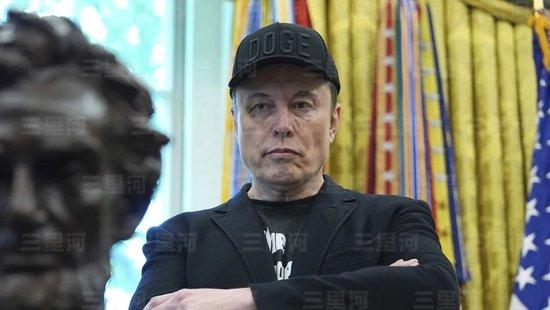
After Tesla’s market value plummeted by a billion dollars in a week, Musk initiates a new political strategy in the United States.
This world’s richest man boldly announced the establishment of his former ally and current President Trump. This is a naked gamble for profit.
The stakes are his business empire, as well as all his political capital in the United States.
This is not an impulsive decision on Musk’s part.
Just the day before, Trump officially signed the “Bigger, Better, Faster” bill, which not only canceled several clean energy incentive policies but also indirectly impacted Tesla’s carbon credit trading business. For Tesla, which has relied on carbon credit income of $100 million and nearly 40% of its profits over the past year, this was like cutting off its lifeline.
JPMorgan Chase had predicted at the beginning of the year that the cancellation of the electric vehicle tax credit would reduce Tesla’s annual operating profit by $1 billion.
The “player who made the move,” was exactly Trump, whom Musk had invested over $100 million in campaign funds to support.
Once a benefactor, now an adversary.
Musk did not hide his anger. He posted several posts on social media, condemning the bill as “absurd”, “revolting”, and “crazy and destructive”, directly pointing out that the bill “gives handouts to sunset industries while severely damaging future industries.”
Trump immediately countered: “Musk’s subsidies are more than any person in history,” and declared, “Without subsidies, Musk might have to shut down and return to South Africa.”
The conflict intensified, and Musk took another step. He announced the establishment of “The American Party”, claiming to “return freedom to the people” and planned to secure up to 30 House seats – enough to tip the scales in Congress, where the current seats are tightly contested.
Externally, it seems that this might be Musk’s negotiation strategy.
During the mid-term elections, he pressured Trump with Republican votes by diluting his appeal, seeking a compromise from the Republican Party under existing policies. In other words, this was a commercial counterattack using votes as weapons.
Although the game has started, it is not easy to play.
Firstly, the threshold for participation in the political process. Based on current laws, new American political parties must undergo a complex certification process to qualify for election. The New York Times has pointed out that establishing a new national party in the United States is more challenging than sending people to Mars.
The “winner-takes-all” electoral system inherently disadvantages the development of third parties. Hans Noel, a professor of political history and political methodology at Georgetown University in the United States, noted, “In the United States, you have to win completely to get rewarded. You cannot win votes by founding a small party and then gain seats in the legislature and build from there.”
The Financial Times also analyzed that even if Musk uses substantial funds to support a new political party, it would be difficult to break the monopoly of the Republican and Democratic parties.
The more active “political Musk” becomes, the more cautious the capital market becomes. Investors worry about his distractions and are even more concerned about his political confrontations potentially affecting the business prospects of his companies.
On the day, due to a year-on-year decline in global car deliveries during the second quarter and the public split with Trump, Tesla’s stock price fell accordingly.
Investors and shareholders’ concerns are clear: they do not want a “politician Musk,” but rather one who focuses on car manufacturing and brings returns. After all, in this high stakes gamble, not only Tesla but also the super high-speed train, brain-computer interface, and Mars colonization dream are at stake.
In the confrontation with Trump, Musk has already put everything on the line. A misstep could undoubtedly deal a heavy blow to his business empire.
Behind the “high stakes” gamble lies the fragile underpinnings of the US political-business relationship. On the surface, it appears as a direct clash between capital and power, but in reality, it is a deep fissure within Trump’s political alliance.
Trump and his supporters’ policy core leans towards anti-globalization and anti-free trade.
The “technological right” represented by Musk, based on the global market as its foundation, embraces free trade and relies on open environments and cross-border supply chains. Their support for Trump is more about confronting the reality of Democratic leftist regulation and taxation. This “strategic alliance” can crumble once it encounters core interests clashes.
This is not just a gamble by Musk alone; it’s a mirror reflecting the entire American political landscape—a failed attempt by tech capital to dominate political agendas.
The reality is harsh. Despite Musk’s brazen behavior in the White House, Trump has neither spared nor relented in his efforts to impose tariffs on tech giants. Now, even Tesla has been precisely targeted, becoming another “sacrifice” close to political power yet unjustly punished.